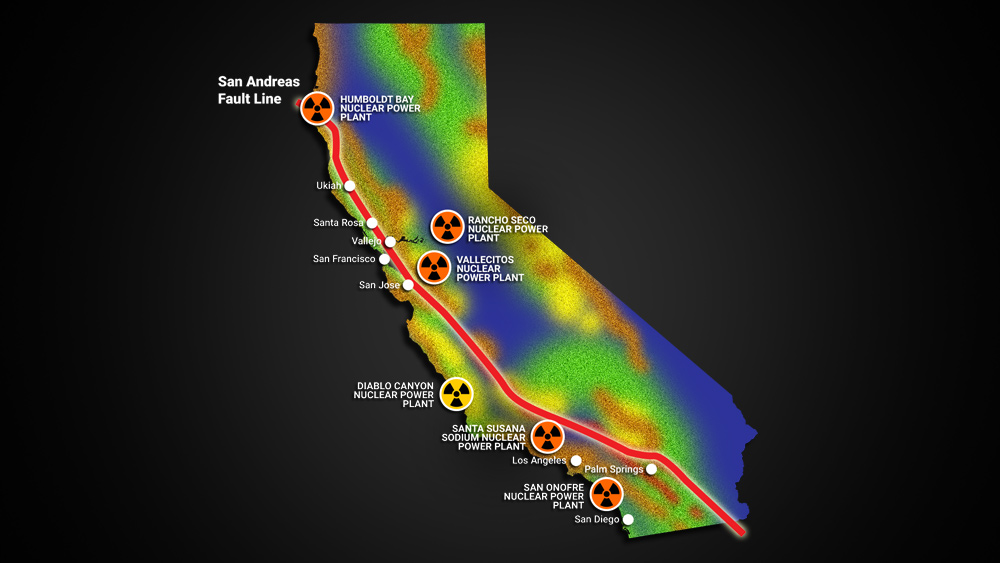Pennsylvania: New report reveals that fracking has caused a large increase in earthquakes
03/02/2017 / By Amy Goodrich

Earthquakes are a rare event in a tectonically peaceful region like Pennsylvania. However, fracking operations triggered a series of small shivers that took place last year, state officials of the Department of Environmental Protection (DEP) announced in a recent report.
While they were too weak to be felt by humans (they ranged from 1.8 to 2.3 on the Richter Scale), up to five earthquakes were recorded in Lawrence County, about 50 miles north of Pittsburgh, in April 2016. The epicenters of the quakes were registered within a five-mile radius of the gas well pad owned by the Texas-based Hilcorp Energy Company.
Fracking-induced earthquakes, which are common in Ohio and Oklahoma, had never been recorded in Pennsylvania, which is the nation’s number two natural gas-producing state. As a result, Pennsylvania is taking steps to monitor and address seismic activities caused by fracking operations.
Earthquakes caused by zipper fracturing
When the DEP warned Hilcorp of the increased seismic activity, the company immediately suspended all fracking operations for an indefinite time. Spokesman Justin Furnace said the company is currently reviewing the DEP’s report and has no plans to resume drilling activities. He added that they will continue to work with the state to address future concerns.
Fracking or hydraulic fracturing is a process where millions of gallons of water along, with sand and chemicals, are injected under high pressure into a well, shattering the shale rocks to free the natural gas. At the time of the quakes, Hilcorp was using a technique called zipper fracturing where two parallel, horizontal wells are simultaneously drilled next to each other.
Seth Pelepko, chief of well-plugging and subsurface activities for the DEP’s oil and gas management program, explained that when the drilling site is too close to the layer of basement rock, earthquakes may arise. He added that compared to other areas in the state the basement rock is quite shallow in Lawrence County. Furthermore, he noted that fracking techniques enlarge the pressure zone near the wells, which can also be a shock-inducing factor.
A “stop-light” procedure to prevent more fracking-induced earthquakes
Since the earthquakes occurred, the DEP has addressed the issue of fracking-induced earthquakes through a list of recommendations for the Hilcorp company. The list is a first step towards creating a stop-light procedure and area-specific regulations to reduce the earthquake risk near fracking sites.
To prevent future quakes, Hilcorp has agreed to stop using zipper fracturing near wells in the townships North Beaver, Union, and Mahoning where the temblors were recorded. Additionally, the DEP has ordered Hilcorp to operate its own seismic monitors to report seismic activity with a magnitude of 1.0 or greater within 10 minutes. Furthermore, when seismic events with a magnitude of 2.0 or higher occur, fracking operations must be suspended and re-evaluated at once.
For Hilcorp it is not the first time its fracking operations have been blamed for causing earthquakes. In 2014, geologists Robert Skoumal, Michael Brudzinski, and Brian Currie, scanned seismological data and recorded 77 earthquakes in Poland Township, Ohio, with magnitudes ranging from 1.0 to 3.0. All 77 quakes occurred around two wells operated by the Texas-based energy company.
As stated by the Ohio geologists, one of the 2014 quakes with a 3.0 magnitude, which is strong enough to be felt by residents, was “potentially one of the largest earthquakes induced by hydraulic fracturing in the United States.”
Sadly, earthquakes are not the only thing people living near injection wells have to fear. Multiple studies have shown that fracking is contaminating our drinking water with cancer-causing chemicals via the waste water they inject into the ground. If you live near a fracking site, a quick lab analysis of your tap water may protect your family’s health.
Follow more news about fracking at Fracking.news.
Sources:
Tagged Under: Earthquakes, fracking, Hilcorp, Hydraulic fracturing, Pennsylvania, wastewater
RECENT NEWS & ARTICLES
COPYRIGHT © 2017 ENVIRON NEWS




















